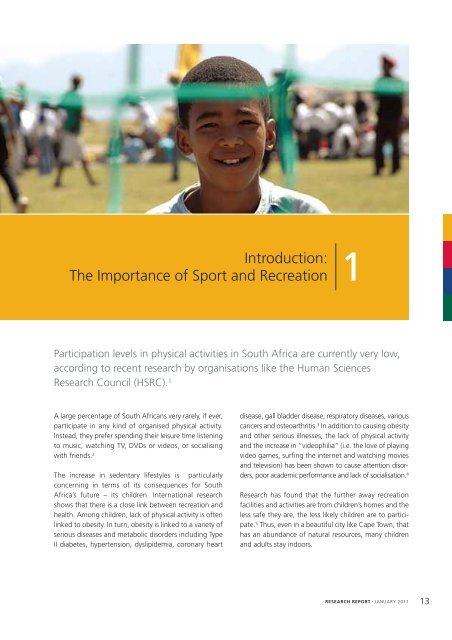Recreation Study
Recreation Study
Recreation Study
- No tags were found...
You also want an ePaper? Increase the reach of your titles
YUMPU automatically turns print PDFs into web optimized ePapers that Google loves.
Introduction:The Importance of Sport and <strong>Recreation</strong>1Participation levels in physical activities in South Africa are currently very low,according to recent research by organisations like the Human SciencesResearch Council (HSRC). 1A large percentage of South Africans very rarely, if ever,participate in any kind of organised physical activity.Instead, they prefer spending their leisure time listeningto music, watching TV, DVDs or videos, or socialisingwith friends. 2The increase in sedentary lifestyles is particularlyconcerning in terms of its consequences for SouthAfrica’s future – its children. International researchshows that there is a close link between recreation andhealth. Among children, lack of physical activity is oftenlinked to obesity. In turn, obesity is linked to a variety ofserious diseases and metabolic disorders including TypeII diabetes, hypertension, dyslipidemia, coronary heartdisease, gall bladder disease, respiratory diseases, variouscancers and osteoarthritis. 3 In addition to causing obesityand other serious illnesses, the lack of physical activityand the increase in “videophilia” (i.e. the love of playingvideo games, surfing the internet and watching moviesand television) has been shown to cause attention disorders,poor academic performance and lack of socialisation. 4Research has found that the further away recreationfacilities and activities are from children’s homes and theless safe they are, the less likely children are to participate.5 Thus, even in a beautiful city like Cape Town, thathas an abundance of natural resources, many childrenand adults stay indoors.RESEARCH REPORT JANUARY 201113


